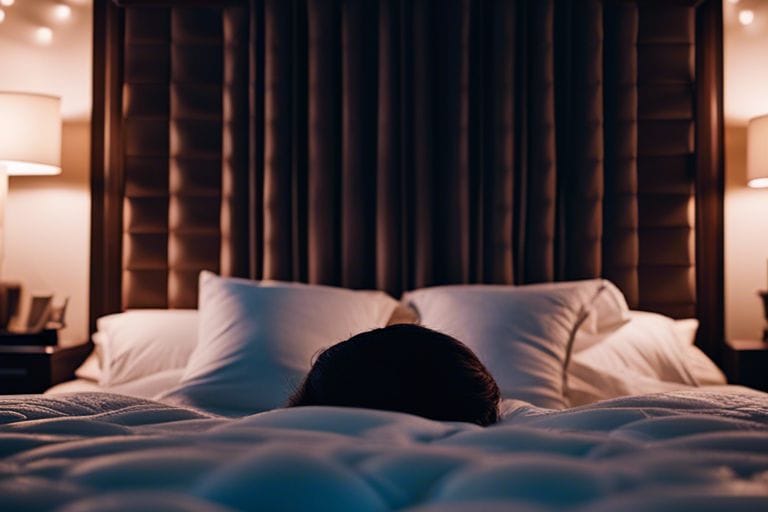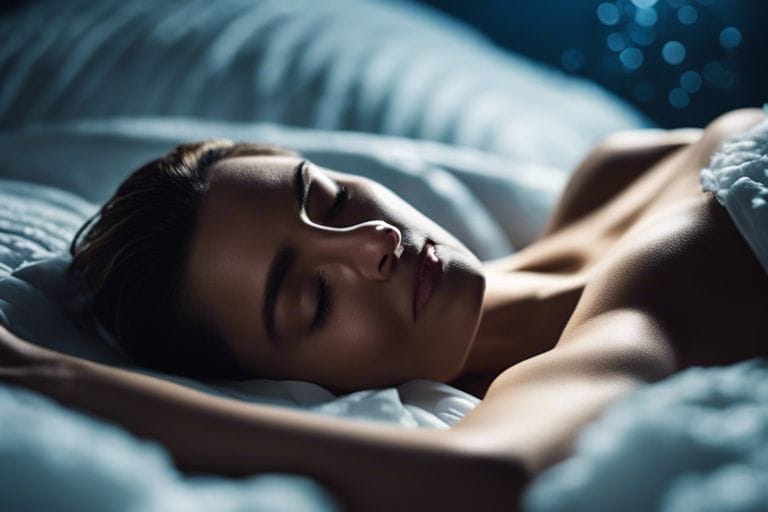Can Mattress Toppers Cause Night Sweats? The Truth
Have you been experiencing night sweats lately and suspect your mattress topper might be the culprit? It’s a common concern for many people, as sleep quality can be greatly affected by night sweats. In this blog post, we’ll explore the relationship between mattress toppers and night sweats, and uncover the truth behind this issue. Understanding the potential causes of night sweats can help you make informed decisions about your bedding and improve the quality of your sleep. So, let’s dive into the facts and get to the bottom of this unsettling problem.
Key Takeaways:
- Mattress toppers can contribute to night sweats: Certain materials used in mattress toppers such as memory foam and latex can prevent airflow, leading to increased body temperature and potential night sweats.
- Choose the right material for your mattress topper: Opt for mattress toppers made from breathable materials like cotton or wool to prevent trapping heat and moisture, reducing the likelihood of night sweats.
- Proper mattress care can alleviate night sweats: Regularly cleaning and airing out your mattress topper, as well as using temperature-regulating bedding, can help prevent night sweats caused by your mattress topper.

Mattress Toppers: Composition and Heat Retention
Some mattress toppers are made from materials that can contribute to heat retention, potentially leading to night sweats. Understanding the composition of mattress toppers and how different materials can affect your body temperature is crucial in determining whether they may be causing your night sweats.
Materials Commonly Used in Mattress Toppers
When it comes to mattress toppers, the materials used can have a significant impact on heat retention. Common materials used in mattress toppers include memory foam, latex, down feathers, and polyester fiberfill. While each material has its own unique properties, it’s important to consider how they may affect your body temperature and contribute to night sweats.
How Different Materials Affect Body Temperature
Understanding how different materials affect your body temperature can help you make an informed decision when choosing a mattress topper. Below is a breakdown of how some common mattress topper materials may impact heat retention:
Material Affect on Body Temperature
Memory Foam
Memory foam has a reputation for retaining heat, which can lead to increased body temperature and night sweats for some individuals.
Latex
Latex mattress toppers are known for their breathability and ability to dissipate heat, making them a better option for those prone to night sweats.
Down Feathers
While down feathers offer excellent insulation, they can trap heat and lead to increased body temperature and night sweats.
Polyester Fiberfill
Polyester fiberfill mattress toppers may retain heat, potentially contributing to night sweats in some individuals.
When considering a mattress topper, it’s important to weigh the potential impact of different materials on your body temperature to ensure a comfortable and restful sleep experience.
Factors That Contribute to Night Sweats
Obviously, a variety of factors can contribute to night sweats and your mattress topper could be one of them. Here are some things to consider:
- Material: Some mattress topper materials, such as memory foam or polyester, can trap heat and cause you to sweat during the night.
- Fitness Level: If you are overweight or have a high body fat percentage, you may be more prone to night sweats.
- Hormonal Imbalance: Fluctuations in hormone levels, particularly in women going through menopause, can lead to night sweats.
- Health Conditions: Certain medical conditions, such as diabetes, hyperthyroidism, or anxiety, can also contribute to night sweats.
Perceiving an issue with night sweats caused by your mattress topper? You can learn more about how to fix a mattress pad that makes you sweat & sleep on Mattress Nut.
Personal Health and Sleep Environment
Your personal health and sleep environment can significantly impact your tendency to experience night sweats. Factors such as your weight, fitness level, hormonal balance, and any existing health conditions can contribute to night sweats. Additionally, your sleep environment, including room temperature and bedding, can also play a role. It’s important to manage any health issues and create a comfortable sleep environment to minimize the occurrence of night sweats.
Interaction Between Mattress Toppers and Other Variables
The interaction between your mattress topper and other variables, such as the type of mattress, bedding, and even your sleep position, can contribute to night sweats. For example, if your mattress topper traps heat and your mattress retains it, you may be more likely to experience night sweats. Similarly, certain bedding materials can exacerbate the issue. Consider how these variables interact with your mattress topper to identify potential solutions to reduce night sweats.

Addressing Night Sweats: Solutions and Alternatives
After discovering that your mattress topper may be contributing to your night sweats, it’s essential to consider potential solutions and alternatives. You deserve to have a peaceful night’s sleep without waking up drenched in sweat. Here are some strategies to combat night sweats and ensure you stay cool and comfortable throughout the night.
Selecting the Right Mattress Topper for Heat Management
When selecting a mattress topper, consider materials that are more breathable and conducive to heat management. Look for toppers made from natural fibers like cotton or bamboo, which are lightweight and allow for better air circulation. Memory foam and latex toppers are good options as they tend to retain less heat than traditional foam. Additionally, choose a topper with a lower density to prevent it from trapping heat against your body.
Additional Strategies to Reduce Night Sweats
Aside from selecting the right mattress topper, there are additional strategies you can implement to reduce night sweats. Ensure your bedroom is well-ventilated and cool by using fans or air conditioning. Opt for moisture-wicking bedding and sleepwear to draw sweat away from your body and keep you dry throughout the night. Avoiding caffeine and alcohol before bedtime can also help to regulate your body’s temperature and reduce the likelihood of night sweats.
Can Mattress Toppers Cause Night Sweats? The Truth
Considering all points discussed, it is important to recognize that mattress toppers can indeed cause night sweats for some individuals. The materials used in mattress toppers, such as memory foam, can retain body heat and lead to increased perspiration during sleep. If you find yourself waking up in the middle of the night drenched in sweat, it may be worth considering the type of mattress topper you are using. Opting for a breathable, moisture-wicking topper or adjusting the temperature in your bedroom could help alleviate night sweats and improve your overall sleep quality.
FAQ
Q: Can mattress toppers cause night sweats?
A: Yes, depending on the material and thickness of the mattress topper, it can trap body heat and cause night sweats. Memory foam and polyurethane foam toppers are known to retain heat, leading to increased sweating during sleep.
Q: How can I prevent night sweats caused by mattress toppers?
A: To prevent night sweats caused by mattress toppers, consider using a breathable and moisture-wicking mattress topper made of materials such as latex or cooling gel. Additionally, opting for a thinner mattress topper and using breathable bedding can help regulate body temperature and reduce sweating during sleep.
Q: Are there other factors that can contribute to night sweats besides mattress toppers?
A: Yes, other factors such as hormonal imbalances, medications, certain medical conditions, and sleeping in a hot environment can also contribute to night sweats. It’s important to consult a healthcare professional if night sweats are persistent or severe, as they could be a symptom of an underlying health issue.
